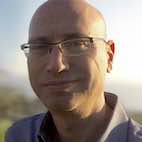The Holocaust
The Holocaust can be a perplexing event. After all, what could have possibly motivated and driven so many people to commit such atrocious acts, and in such numbers, as those committed during the Jewish Holocaust?
To answer this question we must understand what prompted and fueled the antisemitism so prevalent in the psyche of most Europeans on the eve of the Second World War and the beginning of the Holocaust.
Understanding the Holocaust
The Holocaust can be a perplexing event, but it is certainly an understandable one. The history of the Holocaust is perhaps one of the best studied and documented of all. One can begin to learn about the Holocaust by understanding the perpetrators.
“The reason why so many people inside and outside Germany hated Jews so much was because they had all been brought up in an environment in which it was common to blame Jews for all the ills of the world.”
That the Holocaust was perpetrated by only fanatical SS is an already debunked myth. That the Holocaust was perpetrated by people against their will is another debunked fiction. Even the claim that people back home in Germany ignored the extent and nature of the Holocaust has been entirely demolished. Who perpetrated the Holocaust, then? The Holocaust was perpetrated by all sorts of ordinary individuals of various different nationalities and socioeconomic extractions. What drove these people to willingly persecute and kill Jews? What was behind their antisemitism? Why did they hate Jews so much that they willingly collaborated with the Germans during their execution of the Holocaust, the “Final Solution of the Jewish Question”?

“The Jews are the children of the Devil.”
The reason why so many people inside and outside Germany hated Jews so much was because they had all been brought up in an environment in which it was common to blame Jews for all the ills of the world, for being malevolent, for working with the Devil to defile the Christian mind and for crucifying Jesus Christ. These ancient Christian antisemitic accusations, grounded on foundational Christian theology, metamorphosed itself after the Enlightenment into a modern, secular antisemitism. By the time of the Holocaust it was commonly understood that the Jews were responsible for bringing about revolution and chaos to Europe, for Jews and Bolshevism to be one and the same thing, for being behind capitalism and conspiring to dominate the world’s economies. The perpetrators of the Holocaust felt they were fighting an implacable foe, one that was bent on destroying them. Thus, the murderers of Jews during the Holocaust felt they were acting in self-defense, that they were fighting a demonic enemy.
As in other genocides, in the Holocaust the basic elements were there: the demonization of the Jews had been instilled in the population since the time Christianity had become the official religion of the Roman Empire, and the dehumanization of the Jews was pursued relentlessly by the Nazis who held fantastical notions about the putative inferiority of the Jewish race, which they deemed to be pestilent, subhuman, indeed at the same level as vermin or a virus that had to be eradicated. Thus, the German and Austrian perpetrators of the Holocaust, who had been subjected to a barrage of racial antisemitic propaganda for a long time, murdered Jews because they were animated by what they perceived to be a purification zeal, a need to eliminate a noxious pest.
In other countries in which the local population had not been subjected to this racial propaganda, the population was equally as willing to eliminate their Jewish neighbors. In those places, the people were motivated to perpetrate the persecution, atrocities and murder that characterized the Holocaust because those peoples were animated by an ancient, deeply ingrained hatred and contempt for Jews that stemmed from Christian teachings in which Jews were always portrayed in the worst possible way and in which they were typically accused of all sorts of fantastical crimes, including crucifying Jesus. Therefore, the perpetrators of the Holocaust who signed up to be auxiliaries in the exterminatory actions of the Germans, were not only taking revenge against the Jews, but also and just like the Germans, they felt they were ridding the world of a demonic, evil influence and thus felt they were also acting in self defense. The fact that they modernized the ancient Christian accusations and lexicon to give them a more acceptable, secular patina does not change the fact that the common denominator, indeed the foundation on which the hatred of all the perpetrators of the Holocaust stems from, is on the Christian teachings about Jews. Even though Christian antisemitism was a necessary, albeit not sufficient reason for the Holocaust, indisputably absent Christianity there would have been no Holocaust.
Want to stay informed about the topic?
Subscribe below.

